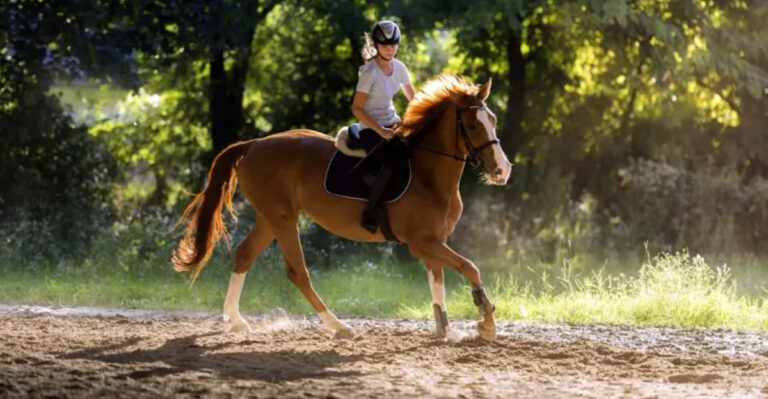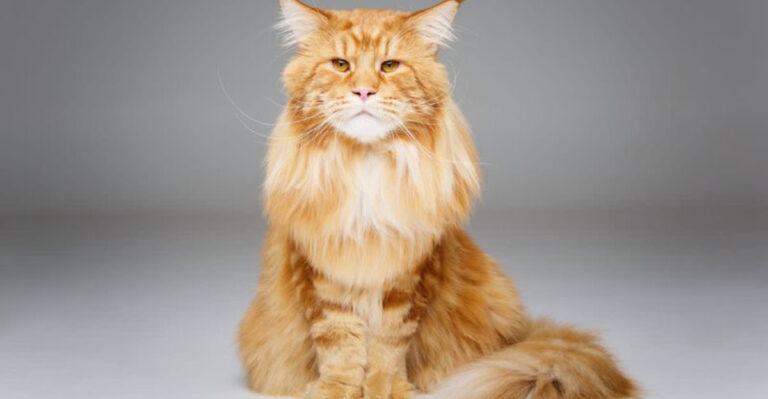12 Ways Chickens Differ From Usual Pet Birds
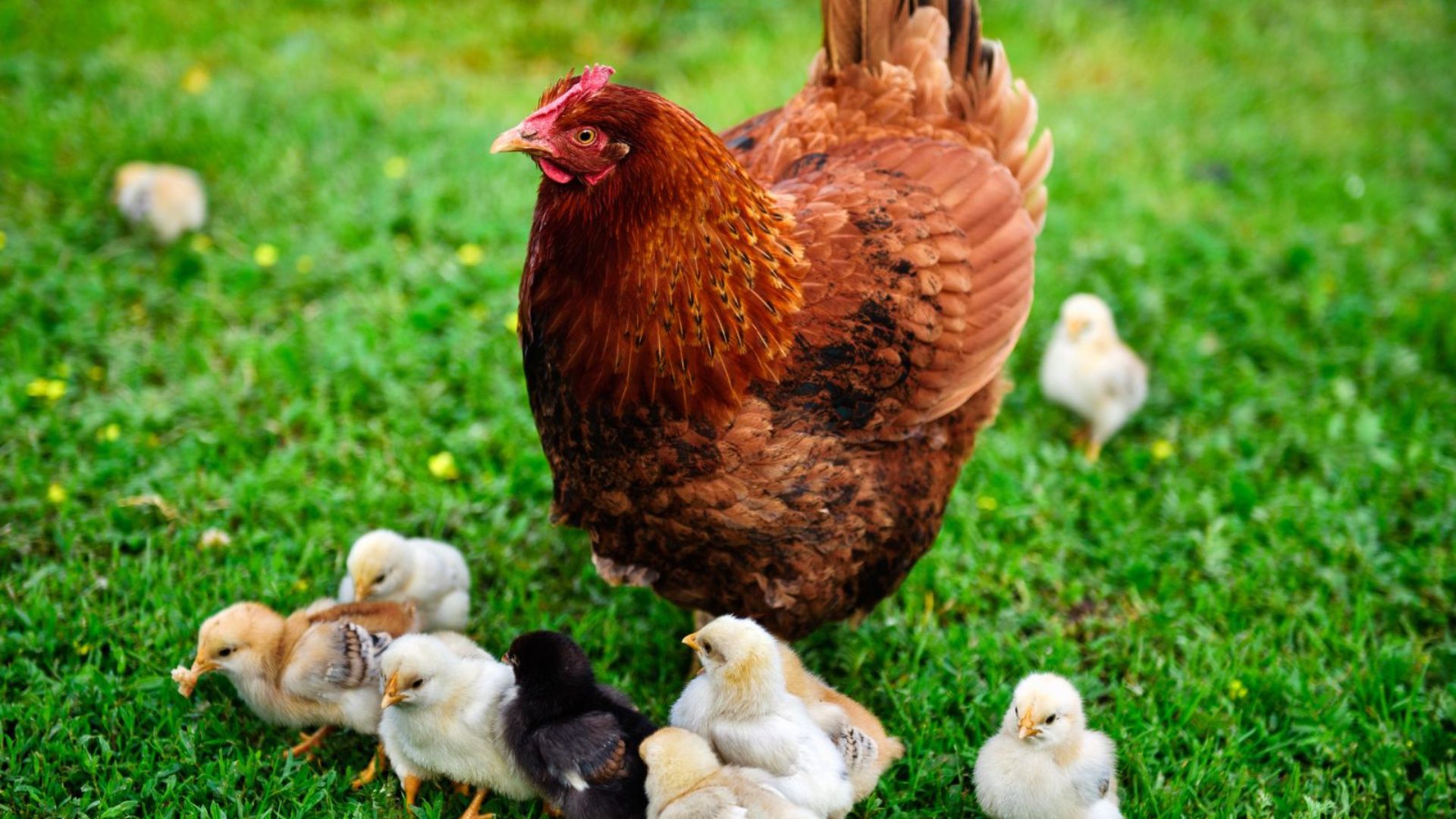
Chickens are fascinating creatures that defy the traditional norms of being typical pet birds. While they share some similarities with other birds, there are numerous distinctive characteristics that set them apart. From their unique behavior to their ecological role, chickens bring a fresh perspective to the avian world.
Let’s explore some intriguing ways in which chickens differ from more conventional pet birds, providing insights and engaging anecdotes to enhance your understanding of these remarkable animals.
1. Feathered Socialites
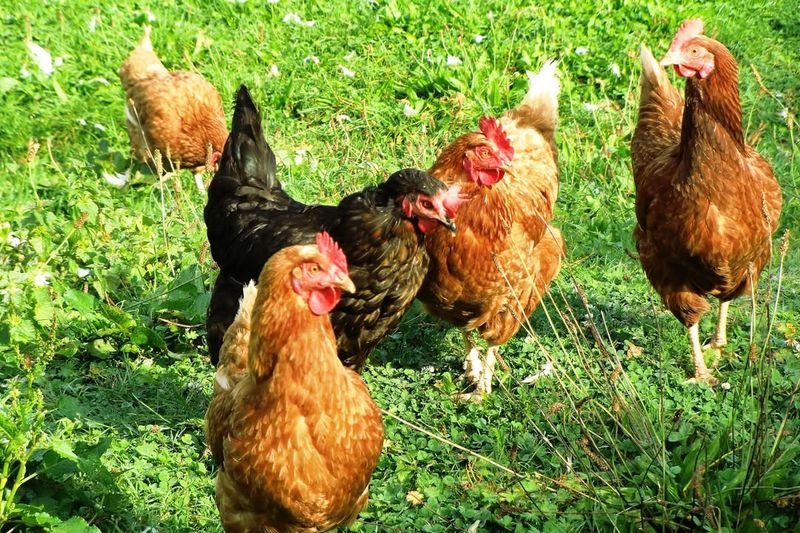
Chickens are the social butterflies of the bird world, always clucking about in groups. Unlike solitary pet birds like parrots or canaries, chickens thrive in flocks, engaging in communal activities that resemble a bustling town meeting. They are known to establish a distinct pecking order, which dictates their social hierarchy, much like a well-organized committee. This social structure is essential for maintaining harmony and ensuring every chicken knows its place in the henhouse.
In contrast to the often independent nature of typical pet birds, chickens are like the extroverts of the avian community. They enjoy the company of their feathered friends, often seen engaging in synchronized foraging or dust bathing sessions. This social behavior is not merely for entertainment; it plays a crucial role in their survival. By sticking together, chickens can better detect predators and protect each other from potential threats.
Their gregarious nature makes chickens particularly endearing as pets. Owners often find themselves entertained by their antics and charmed by their curious personalities. The social dynamics of a chicken coop can be as complex and fascinating as any soap opera, offering endless amusement and insight into avian behavior.
2. The Early Birds
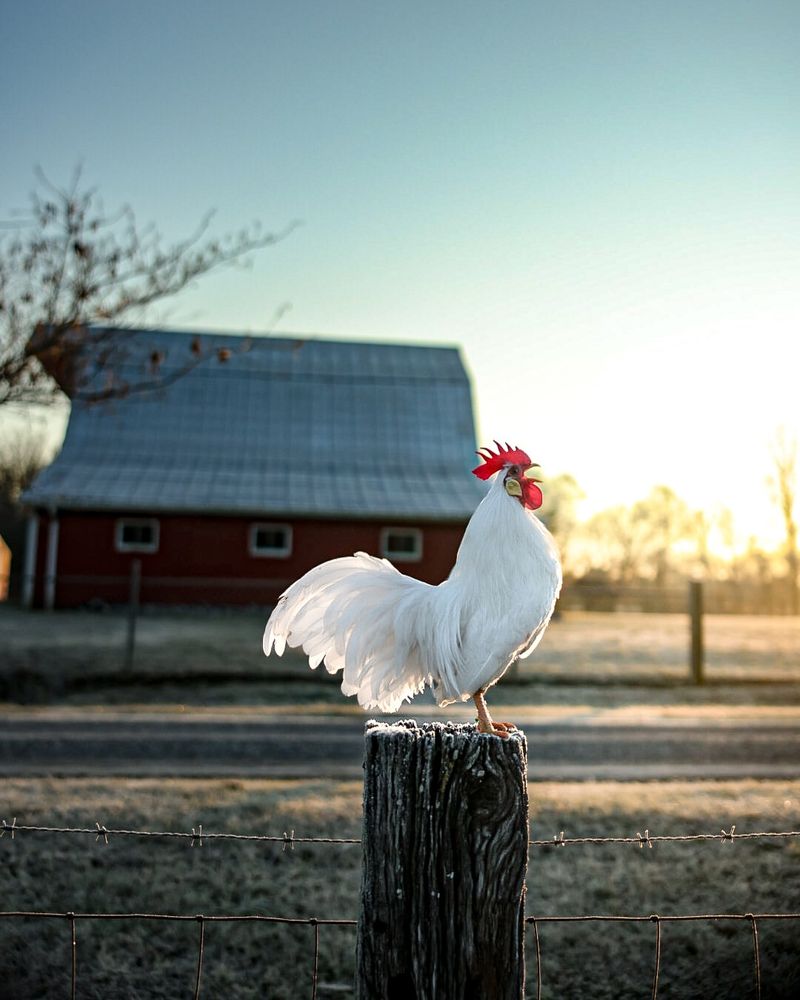
Unlike pet birds who might enjoy a sleep-in, chickens are notorious for their early morning wake-up calls, especially the roosters, whose crowing can be heard from afar. This trait is not just an annoyance; it’s a deeply ingrained behavior rooted in their survival instincts.
The early riser habit of chickens is closely tied to their foraging needs. By waking up with the dawn, they maximize their daylight hours, ensuring they have enough time to find food and engage in other essential activities. This proactive approach to the day is something many humans might relate to, especially those who champion the “early bird catches the worm” philosophy.
Additionally, chickens’ early morning routine fosters a sense of community as they start their day together, sharing the morning meal and planning their day’s activities. This bustling start to the day highlights their role as industrious creatures who waste no time in getting things done. Their morning rituals are a testament to their diligent and organized nature, making them unique in the bird kingdom.
3. Ecological Gardeners
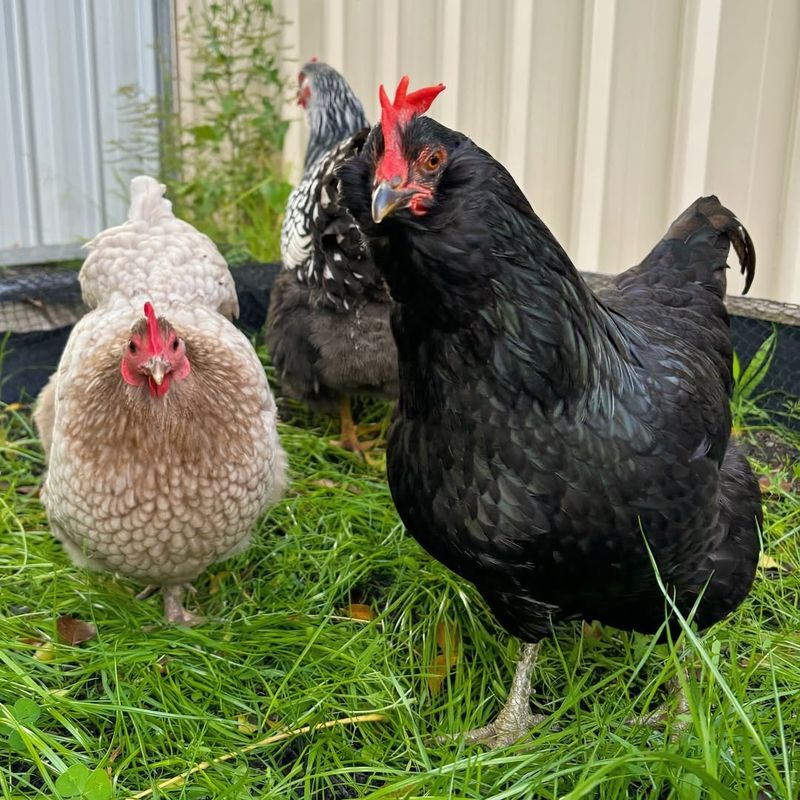
While pet birds might enjoy a perch in your living room, chickens can be found putting their skills to use in the garden. Known as nature’s gardeners, chickens help control pests and fertilize the soil with their droppings. Unlike other pet birds that require constant care, chickens contribute to the upkeep of their environment, making them both useful and charming companions.
Chickens are proficient foragers, scratching and pecking at the ground to uncover insects and worms, which are natural delicacies for them. This behavior not only provides them with nutrition but also aerates the soil, promoting healthy plant growth. Their droppings, rich in nitrogen, serve as excellent fertilizer, adding nutrients to the garden without the need for chemical interventions.
This symbiotic relationship between chickens and gardens is beneficial for both parties. Chickens receive a natural diet and the mental stimulation of foraging, while garden plants thrive under their care. This natural gardening prowess sets chickens apart from other pet birds, whose contributions might be limited to cheerful chirping. For those with green thumbs, chickens offer the perfect blend of utility and companionship, ensuring a flourishing garden.
4. Eggcellent Producers
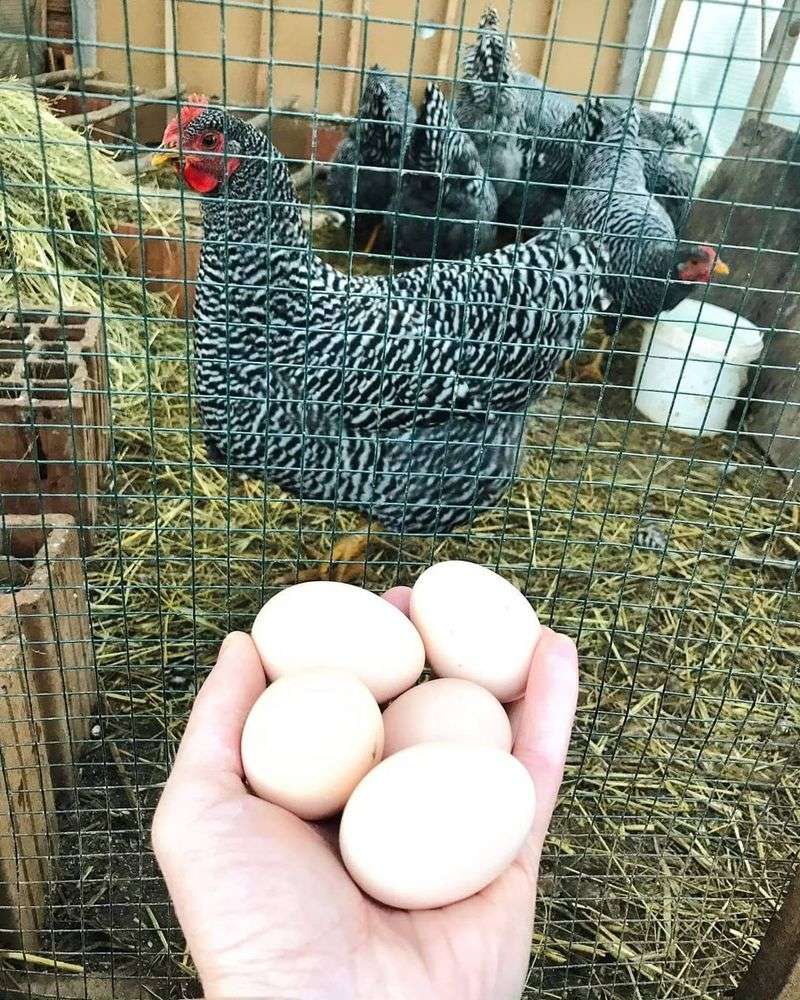
Chickens have one claim to fame that no pet bird can compete with: their egg-laying prowess. Unlike typical aviary companions, chickens can provide a steady supply of fresh eggs, making them both practical and charming additions to the household. With a variety of breeds known for their egg production, chicken owners can enjoy a range of colors and sizes, from the classic white and brown to the more exotic blue or green eggs.
The process of egg-laying is a fascinating aspect of chicken behavior. Hens begin laying eggs as early as six months old, with peak production occurring in their early years. Each breed has its own unique laying pattern, some producing more frequently than others. This diversity offers chicken enthusiasts a delightful challenge as they explore the best breeds for their needs.
Eggs are not just a source of nourishment; they are a testament to the hen’s health and well-being. A happy, healthy chicken will produce eggs regularly, providing a tangible reward for their care. This productive trait distinguishes chickens from other pet birds and underscores their value as both pets and providers, adding a layer of practicality to their charming personalities.
5. Distinct Vocalists
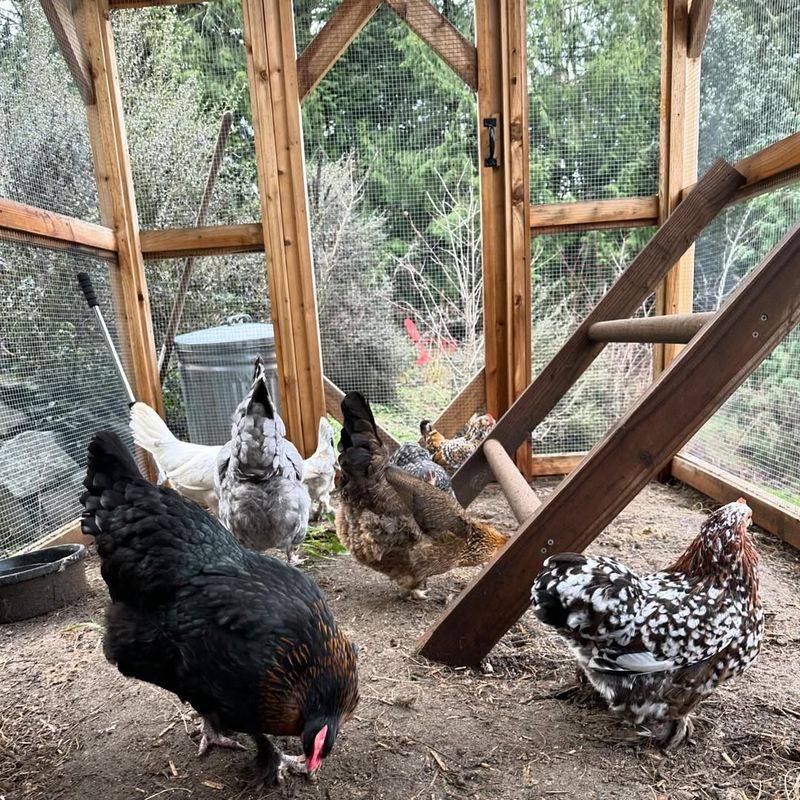
Unlike the melodic songs of canaries or the mimicry of parrots, chickens communicate with a series of sounds that are more functional than musical. Their vocalizations serve as essential tools for maintaining social order and expressing needs within the flock.
Roosters are the most vocal members, using their crow to establish territory and signal the start of the day. Hens, on the other hand, use a series of clucks to communicate with their chicks, alert the flock to food sources, or warn of approaching danger. This complex system of sounds creates a lively soundscape within the coop, where each vocalization serves a specific purpose.
The distinct vocal patterns of chickens set them apart from other pet birds, whose sounds might be more geared towards entertainment. Chicken owners often find joy in deciphering their flock’s chatter, gaining insights into their mood and well-being. This unique method of communication further enriches the bond between chickens and their caretakers, offering a deeper understanding of these fascinating creatures.
6. Grounded Aviators
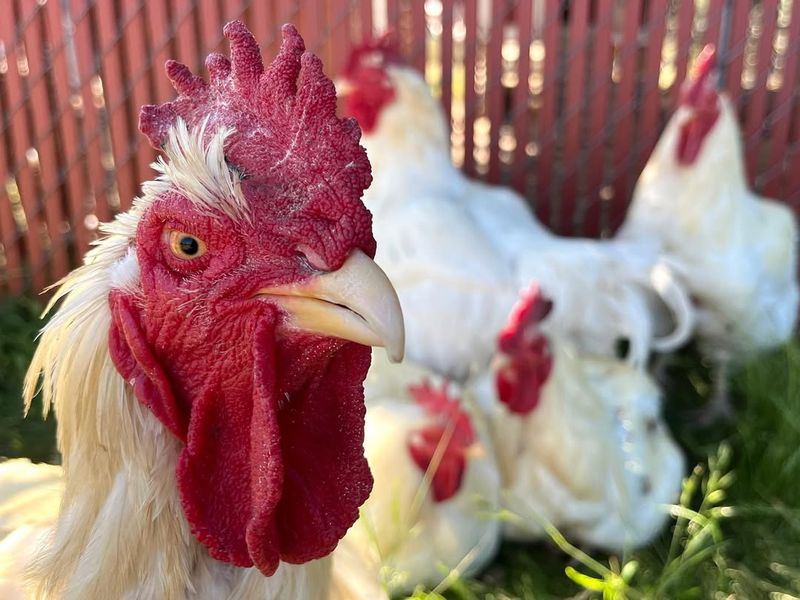
Chickens are often seen as the clumsy cousins of the bird world when it comes to flying. Unlike pet birds that soar gracefully, chickens are more grounded, with limited flight abilities that serve specific purposes. Their short, fluttery flights are a far cry from the soaring adventures of parrots or budgies, but they are perfectly adapted to the chicken’s lifestyle.
The primary purpose of these limited flights is to escape predators or reach perches for safety. Chickens are more comfortable on the ground, where they can forage and socialize without the need to venture far into the skies. This grounded nature is a defining characteristic, making them more accessible and easier to manage as pets.
Their inability to fly long distances might seem like a disadvantage, but it actually contributes to their charm. Chicken owners can enjoy the benefits of having their feathered friends close by, without worrying about them flying away. This trait also makes it easier to contain and manage them within a coop or backyard, ensuring they remain safe and sound. In the world of birds, chickens prove that you don’t need to fly high to live a fulfilling life.
7. Diverse Diets
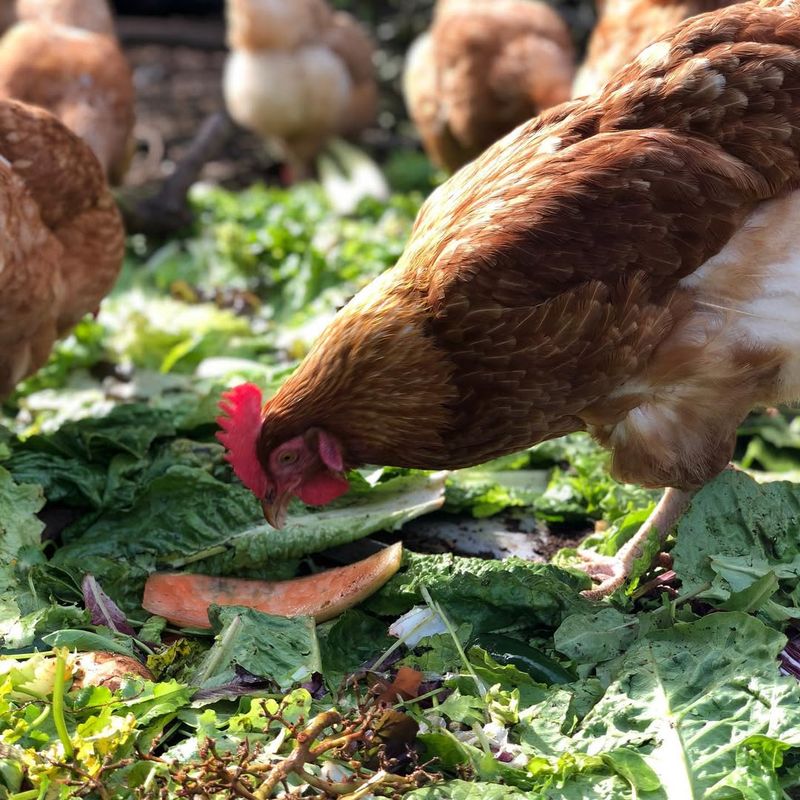
Unlike many pet birds that thrive on a diet of seeds or pellets, chickens enjoy a wide array of foods, from grains and vegetables to the occasional insect delicacy. This varied diet not only keeps them healthy but also provides ample opportunities for enrichment.
The omnivorous nature of chickens allows them to forage for a significant portion of their diet, which includes seeds, insects, and even small reptiles. This natural foraging behavior is not only beneficial for their physical health but also offers mental stimulation, keeping them active and engaged. Chicken owners often supplement this diet with kitchen scraps and commercial feed to ensure balanced nutrition.
With their adventurous palates, chickens are the perfect pets for those who enjoy experimenting with different foods. Their willingness to try new things adds an element of fun to feeding time, making it an engaging experience for both the chickens and their owners. This diverse dietary preference distinguishes chickens from other pet birds, allowing them to thrive on a wide range of foods while maintaining a balanced diet.
8. Versatile Accommodations
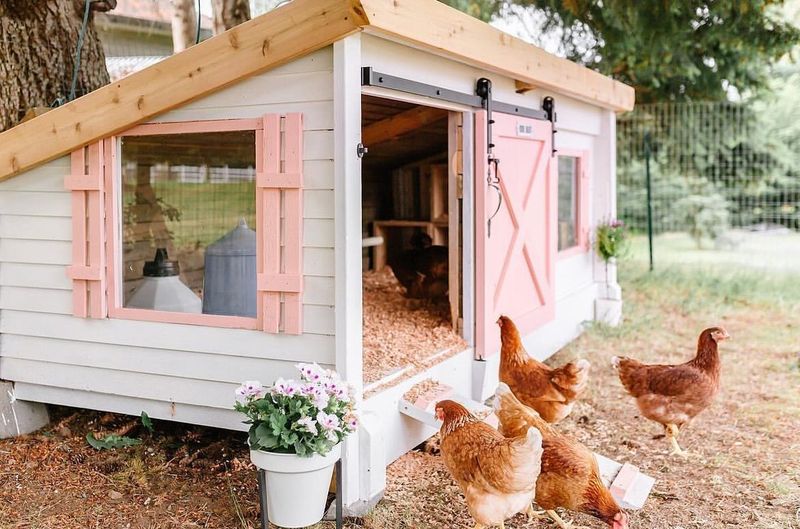
Chickens are the ultimate adaptable birds when it comes to housing needs. This versatility makes them an appealing choice for pet owners with different levels of space and resources.
A well-designed chicken coop provides shelter and security, offering a safe haven from predators and harsh weather conditions. These coops can be customized to suit the number of chickens and the specific needs of the flock. Some owners opt for elaborate setups with nesting boxes, perches, and dust bathing areas, while others prefer minimalist designs that prioritize functionality.
Chickens also adapt well to free-range environments, where they have the freedom to roam and forage at will. This flexibility allows owners to provide an enriching habitat that promotes natural behaviors and enhances their overall quality of life. The ability to tailor accommodations to fit any lifestyle sets chickens apart from typical pet birds, offering a unique opportunity to create a perfect home for these charming creatures.
9. Resilient Survivors
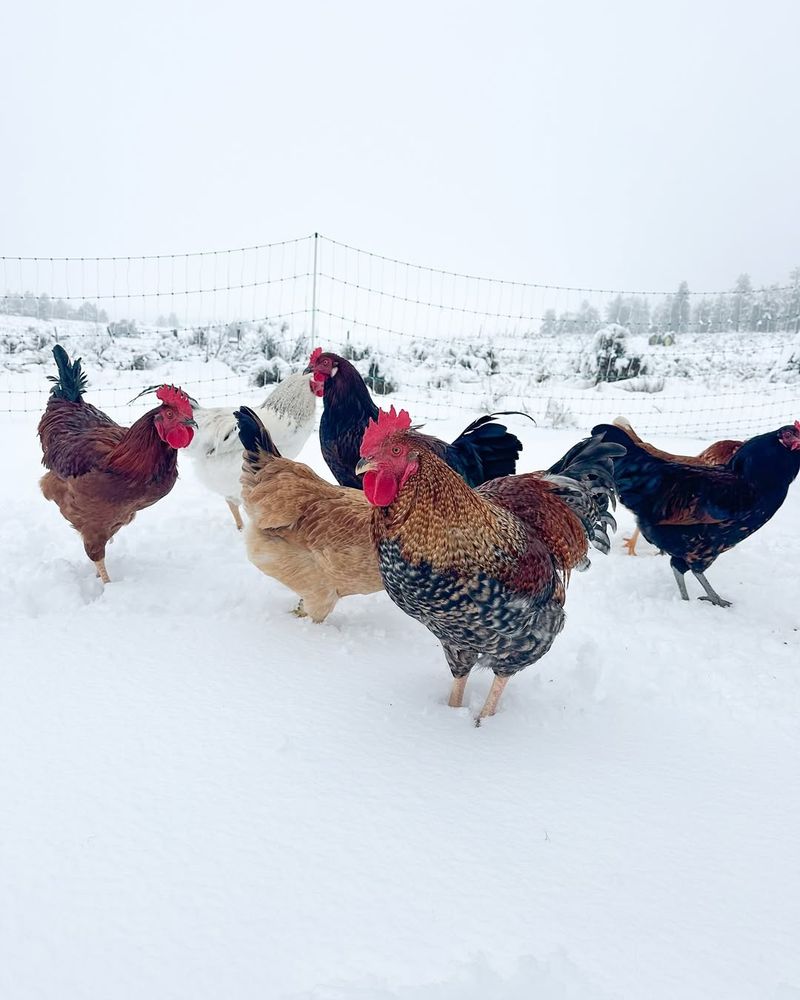
Chickens are the hardy heroes of the bird world, known for their resilience and adaptability. Their ability to withstand different climates and environments makes them versatile pets for both urban and rural settings.
Their survival instincts are honed through years of evolution, enabling them to cope with challenges such as predators, disease, and climate fluctuations. Chickens have developed strong immune systems and behaviors that promote group safety, ensuring their longevity as a species. This resilience is a testament to their ability to adapt and thrive in diverse habitats.
For pet owners, chickens offer a low-maintenance option that doesn’t compromise on companionship or entertainment. Their hardy nature means they require less intensive care than some other pet birds, making them ideal for those looking for a rewarding yet manageable pet experience. The enduring spirit of chickens sets them apart, offering a unique blend of toughness and charm that captures the hearts of their caretakers.
10. Unique Personalities
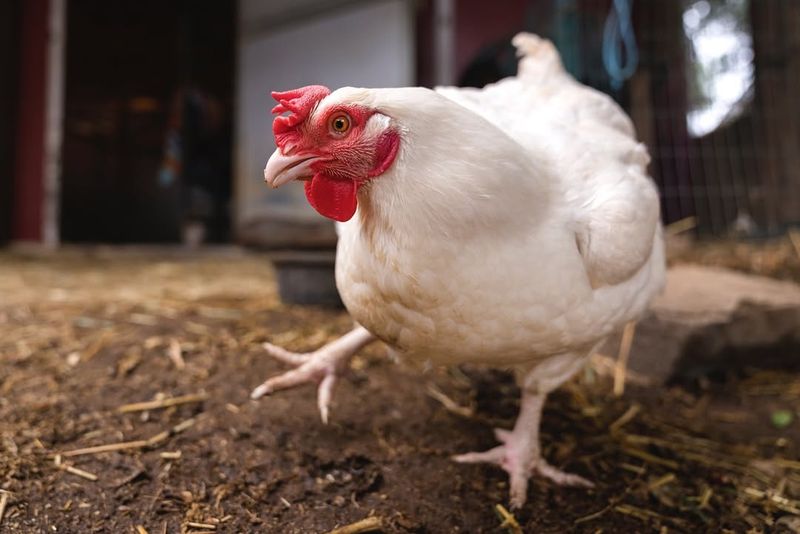
Each chicken boasts a distinct personality, complete with quirks and preferences that make them as unique as the next. These diverse personalities make chickens endlessly entertaining, as no two are exactly alike.
Some chickens are natural leaders, asserting their dominance and guiding the flock with confidence. Others might be more laid-back, happy to follow along and avoid conflict. Then there are the curious explorers, always on the lookout for new adventures and opportunities to satisfy their inquisitive nature.
This variety in character creates a dynamic social environment within the flock, where relationships and interactions are constantly evolving. Chicken owners often find themselves forming bonds with their favorite birds, recognizing their unique traits and building rapport. This rich tapestry of personalities distinguishes chickens from other pet birds, offering a multi-faceted pet experience that is both engaging and fulfilling.
11. Educational Companions
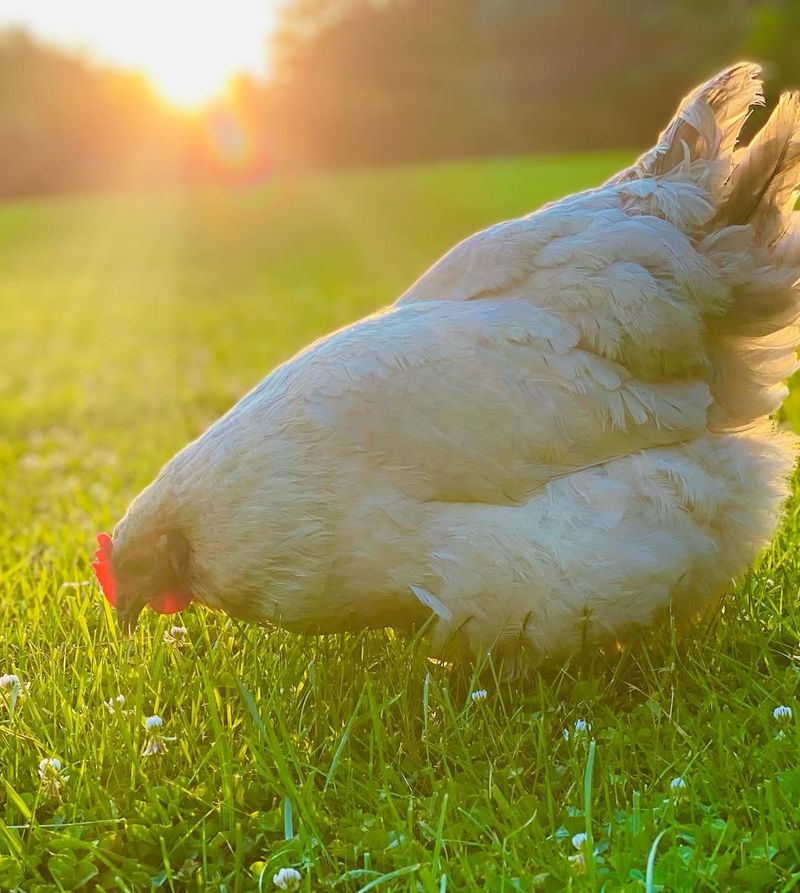
Unlike some pet birds that might be more ornamental, chickens offer a hands-on learning experience that is both fun and informative. Their presence in educational settings provides students with a unique opportunity to learn about biology, ecology, and responsibility.
Engaging with chickens allows students to observe natural behaviors such as foraging, social interactions, and egg-laying. These firsthand experiences foster a deeper understanding of life sciences, promoting curiosity and critical thinking. Teachers can use chickens to illustrate broader concepts, such as the food chain, ecosystem dynamics, and sustainable practices.
For families, chickens offer a chance to teach children about animal care and the responsibilities of pet ownership. Involving kids in daily tasks like feeding, cleaning, and collecting eggs instills a sense of accountability and empathy. This educational aspect sets chickens apart from other pet birds, providing a multi-dimensional experience that enriches lives and broadens horizons.
12. The Fashionistas
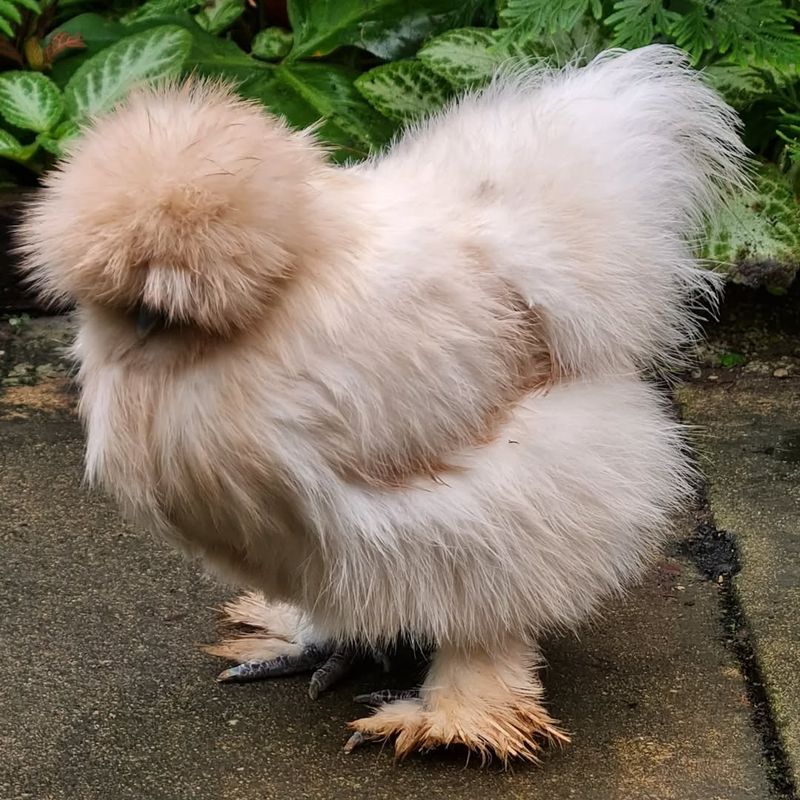
Chickens are the divas of the bird world, flaunting a diversity of plumage that rivals any pet bird. From the fluffy Silkies to the iridescent sheen of the Ayam Cemani, chickens come in a dazzling array of colors and textures. This variety in appearance makes them appealing both as pets and as show birds in competitions.
Each breed boasts its own unique feather patterns, with some chickens sporting elaborate crests, tufts, or even “beards.” These distinctive features add personality and flair, making every chicken a visual delight. For chicken enthusiasts, the art of breeding and showcasing these beautiful birds is a rewarding hobby that celebrates their aesthetic appeal.
The fashion-forward nature of chickens extends beyond their feathers. Many chicken owners enjoy dressing up their birds in costumes or accessories, adding a playful element to their care. This fashionable aspect of chicken ownership distinguishes them from other pet birds, offering endless opportunities for creativity and expression. With their stylish looks and charming personalities, chickens prove that they are not just ordinary birds, but true avian icons.

